Multimedia, Compression and Semi-Synthetic Benchmarks
X264 FHD
x264 is a free software library for encoding video streams into the H.264/MPEG-4 AVC format. x264 FHD measures how efficient a system is in encoding H.264 video and produces results in frames-per-second. H.265/HEVC video encoding is the future of video able to compress significantly larger resolution videos including 4K and make streaming a possibility.
In the X264 FHD benchmark, again, the 9900k was the clear winner completing the benchmark with an average of 58.1 frames per second. Next was the 2700x at 52.05 frames per second. In last place with the 8700k which finished with an average of 43.63 frames per second. The big surprise for me was how far ahead of the 8700k the 9900k was.
X265
x265 is an open-source implementation of the H.265 standard and x.265 HD benchmark tests the CPU’s ability to process an HEVC video. This benchmark is run by the processor alone. The 2700x averaged 29.96 frames per second. The 8700k averaged 27.27 frames per second and the 9900k did best with an average of 35.96 frames per second.
7-Zip
The 7-zip benchmark shows a rating in MIPS (million instructions per second). The rating value is calculated from the measured speed, and it is normalized with results of Intel Core 2 CPU with multi-threading option switched off. So, if you have modern CPU from Intel or AMD, rating values in single-thread mode must be close to real CPU frequency. There are two tests, compression with LZMA method and decompression with LZMA method. Once the total passes reach 100, the score is taken. 7-Zip gives the resulting score for decompressing, compressing and an overall score. The Decompressing score for the 2700x was 50205 MIPS, or Million Instructions per Second. The Compression score was 39537 MIPS and the overall score was 44889 MIPS. The Decompressing score for the 8700k was 34524 MIPS, or Million Instructions per Second. The Compression score was 37005 MIPS and the overall score was 35764 MIPS. The Decompressing score for the 9900k was 53429 MIPS, or Million Instructions per Second. The Compression score was 45479 MIPS and the overall score was 49454 MIPS. As you can see, the 9900k did best in all tests.
WINRAR
WinRAR is a file archive utility for Windows, developed by Eugene Roshal of win.rar GmbH. It can create and view archives in RAR or ZIP file formats and unpack numerous archive file formats. All three processors ran Winrar for about 20 minutes each. The final results for the 2700x was 11250 KB/s. The results for the 8700k was 13499 KB/s and for the 9900k the resulting total was 21373. As the results show, the 9900k was the clear winner.
Handbrake
HandBrake is a free and open-source video transcoder, originally developed in 2003 by Eric Petit to make ripping a film from a DVD to a data storage device easier. Essentially, it can convert video to almost any modern format. HandBrake is available for Linux, macOS, and Windows. The workload video file is a ~6.27 GB, 3840 x 1714, 24FPS, H.264, .mov video file that is transcoded to a ~1480 MB, 1920×1080, 30ps, H.264, .mp4 video file. The video file is called Tears of Steel. The i9 9900k encoded the file in 5 minutes and 30 seconds. This was almost 2 minutes slower than 7 minutes and 22 seconds the i7 8700k took to encode the same file. The 2700x did better than I had expected, encoding the file in 6 minutes and 17 seconds. I wasn’t too surprised that the 9900k came out ahead of the pack. My surprise was how far ahead of the 8700k it was.
PCMark 10
PCMark 10 is a system benchmark for Windows PCs which focuses on common tasks performed in the office. PCMARK 10 offers a variety of workloads categorized into four groups. The Essentials group includes web browsing, video conferencing, and app start-up time. The Productivity group includes tests based on spreadsheets and writing. The Digital Content Creation group includes photo editing, video editing, and a rendering and visualization test. The final group, Gaming, includes tests for real-time graphics and physics. It has three different benchmarks, PCMARK 10, PCMARK 10 Express and PCMARK 10 Extended. We ran PCMARK 10 on both the i7 87700k and the i9 9900k. I’m not sure what the issue was with the Ryzen test system used in this review. PCMARK 10 just wouldn’t run on this system. The board was the ASUS X4770 TUF and it was on the latest BIOS. I tried the R5 2600, R77 2700 and the R7 2700x. All three processors gave the same results. Failure on the first test. So, I used the number one result on the list for PCMARK 10 using the R7 2700x and an RTX 2080. This was there is at least a result on the chart for the 2700x.
The i7 8700k was the bottom of the pack in PCMARK 10 with an overall score of 6233. The top result on the PCMARK site for the R7 2700x had an overall score of 6501, beating out the best score I got with our 8700k test system. On top was the i9 9900k with an overall score of 7109, far above the rest.

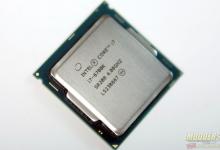







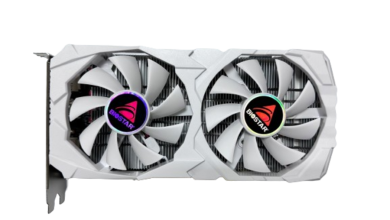
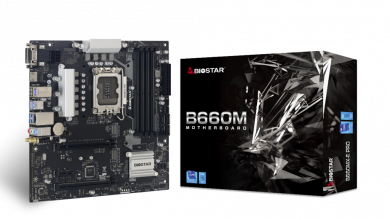
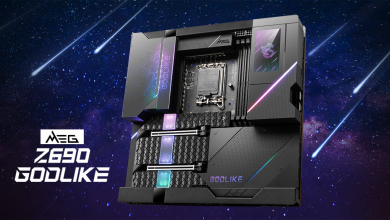
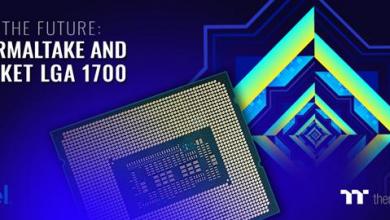
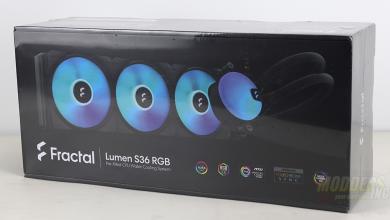

x264 FHD Benchmark 1.0.1 and x264 HD Benchmark 5.0.1 both are now ancient though.